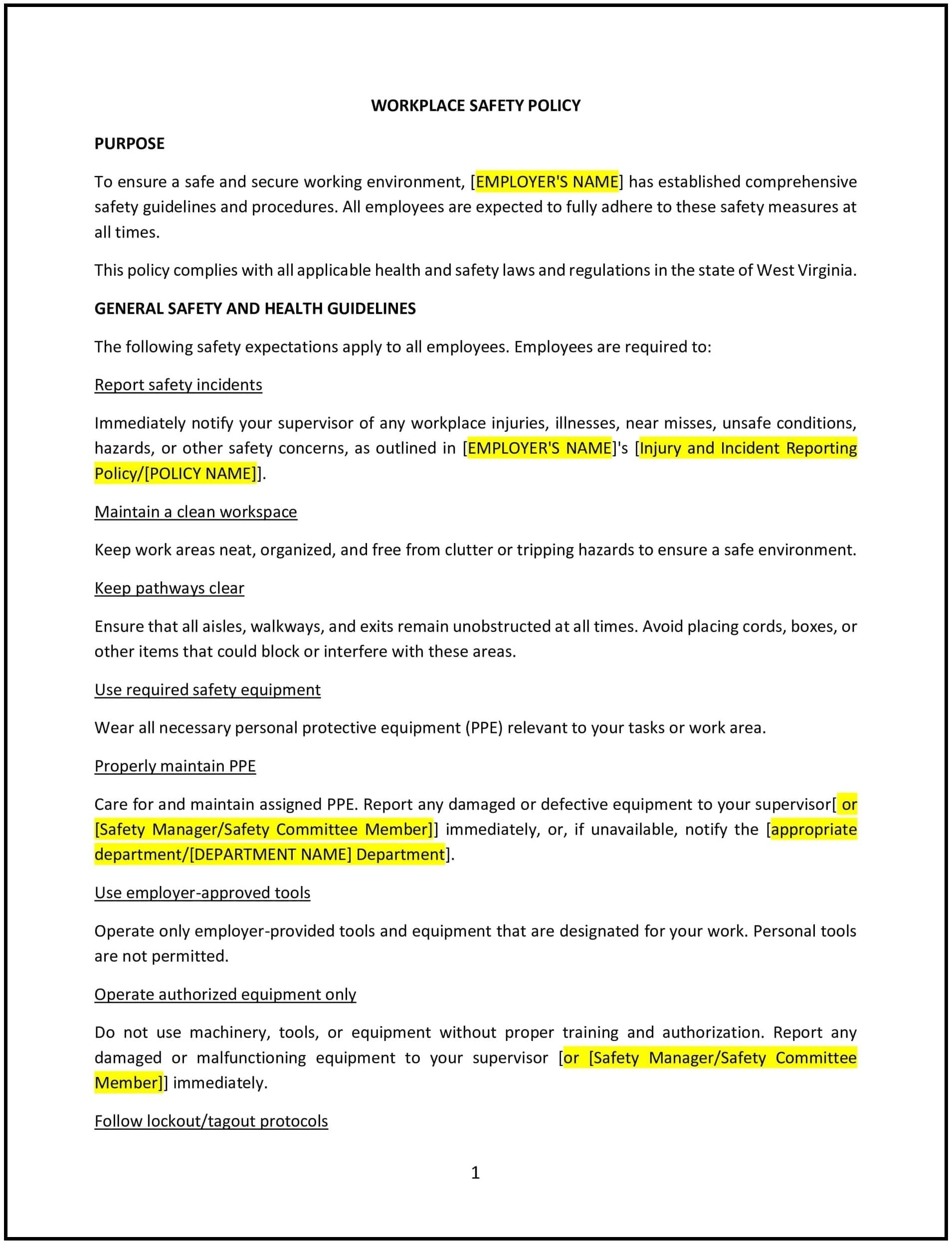Workplace safety policy (West Virginia): Free template
Got contracts to review? While you're here for policies, let Cobrief make contract review effortless—start your free review now.

Customize this template for free
Workplace safety policy (West Virginia)
In West Virginia, a workplace safety policy establishes guidelines to maintain a secure and healthy work environment for employees, customers, and visitors. This policy outlines procedures for identifying, reporting, and addressing workplace hazards while fostering a culture of safety and accountability. It promotes compliance with state and federal safety regulations, including Occupational Safety and Health Administration (OSHA) standards.
The policy includes safety expectations, responsibilities, and preventive measures tailored to West Virginia's unique industries and workforce needs.
How to use this workplace safety policy (West Virginia)
- Define safety expectations: Clearly outline workplace safety standards, including the use of personal protective equipment (PPE), hazard identification, and emergency procedures.
- Establish responsibilities: Specify the roles of employees, supervisors, and management in maintaining workplace safety and adhering to safety regulations.
- Provide reporting procedures: Detail how employees can report hazards, unsafe conditions, or workplace incidents promptly and confidentially.
- Emphasize preventive measures: Highlight initiatives such as safety training, regular inspections, and the implementation of hazard mitigation strategies.
- Support compliance: Align the policy with West Virginia labor laws, OSHA standards, and industry-specific safety requirements.
Benefits of using a workplace safety policy (West Virginia)
- Enhances workplace safety: Reduces the risk of accidents, injuries, and illnesses through proactive safety measures.
- Supports compliance: Promotes adherence to OSHA standards and West Virginia safety regulations, minimizing legal risks and penalties.
- Encourages accountability: Promotes a culture where employees take responsibility for their safety and that of their colleagues.
- Improves morale: Demonstrates the organization’s commitment to employee well-being, fostering trust and engagement.
- Adapts to local needs: Addresses safety considerations specific to West Virginia’s industries, such as mining, energy, and agriculture.
Tips for using a workplace safety policy (West Virginia)
- Communicate effectively: Share the policy with employees during onboarding and provide ongoing safety training to reinforce its importance.
- Train supervisors: Equip managers with the knowledge and skills to enforce safety standards and respond to incidents effectively.
- Conduct regular inspections: Perform routine safety audits to identify and address potential hazards promptly.
- Document incidents: Maintain accurate records of workplace incidents, investigations, and corrective actions to ensure compliance and accountability.
- Review periodically: Update the policy to reflect changes in West Virginia laws, workplace practices, or safety standards.